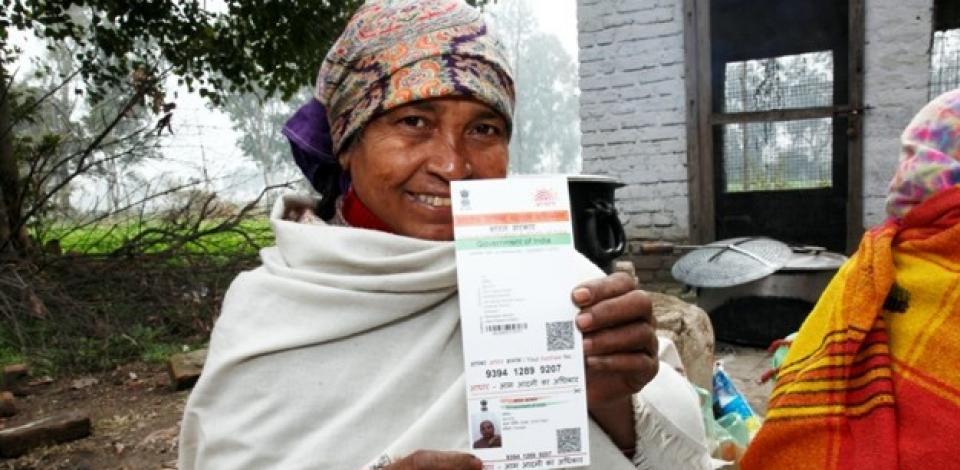Promoting resilience
Diagnosis with an NTD can be distressing. If the diagnosis results in social exclusion and rejection, this may lead to mental health problems such as emotional stress, anxiety, depression, isolation and even suicide attempts. It is therefore important to build the capacity of the stigmatised person to deal with, withstand and overcome discrimination. Building resilience and psychological strength can help individuals to cope with hardship or challenges they might experience at any time.
Issues for which the individual might require individual/psychosocial support include:
- Accepting the diagnosis of a disease and its consequences.
- Coping with discrimination and prejudice from others.
- Difficulties in disclosing their disease status to others.
- Overwhelming or uncontrollable feelings that affect day-to-day life.
- Beliefs and fears about the disease.
- Acceptance of changes in appearance and body due to the disease.
- Adjustments to changes in lifestyle and status due to stigma.
- Adjustments to changes in family, marriage and social relationships.
- Coping with economic losses, inability to work as before and changing roles within the household because of loss of employment.

‘Resilience’ can be understood as ‘being strong and bouncing back’. In that way, resilience is like the bamboo that bends and bounces back, not like the tree that breaks in a storm. Bamboo survives in difficult conditions, still standing tall and staying green all year. When there is a storm, bamboo bends with the wind. When the storm is over, it resumes its upright position.
Psychosocial support
Psychosocial support, sometimes referred to as counselling, psychological first aid or psychological help, is a helping relationship that involves a support partner working with a person to address the feelings (emotions), thoughts and beliefs, behaviours and relationships that are associated with the diagnosis and with the ongoing process of living with an NTD. The person is supported to understand and express their own thoughts and feelings about living with the condition, and to become empowered to deal with the issues that arise from their condition, leading to a better quality of life within family and community.
Psychosocial support should help the individual towards:
- Improved understanding and acceptance of themselves, including challenges and potentials.
- Improved understanding and acceptance of their situation and condition.
- Improved clarity about issues and awareness that something can be done about the problem.
- Improved self-esteem and confidence in their ability to handle their issues.
- Improved state of mental wellbeing.
- Realistic understanding of stigma.
- Motivation to resume meaningful participation in the family and community.
Whilst psychosocial support focuses on the individual, it can be beneficial to also work with the household and community when addressing the issues. This is described in chapters 3 and 4 of this Guide. Resources can be found in Guide 2 Annex 4: Resources for psychosocial support.
Good listening
Being an effective partner in the psychosocial support process is a combination of attitudes and personal qualities, skills and knowledge of the health condition, the cultural/social context and good ethics. Communication skills are especially crucial, as communication plays a major role in moving the psychosocial support process in the right direction. More than any other skill, good listening initiates positive change for the individual.
It takes understanding, self-awareness and practice to master the art of good listening. The purpose is to give the person a safe space to tell their story and to acknowledge, express and talk about their feelings, beliefs and thinking – and from this to understand, accept and solve some of the problems they experience. Good listening is about empowering people to understand and manage their own situation, both personal and social, and cope with the changes that the disease has brought into their lives.
Good listeners listen with their heart and mind, ears and eyes.
The heart and mind. The health worker or support partner’s attitude to the person experiencing the NTD and its consequences is very important. Respect, empathy, acceptance and genuine listening can be the beginning of the journey towards emotional and mental wellbeing. In situations where any kind of stigma and discrimination is feared or has developed, the health worker may be the first person who shows a different reaction, one of giving value, seeing potential and creating hope. The personal character and attitudes of the health worker are often the first and most significant ingredient for helping a person experiencing emotional or psychological problems. This positive attitude is seen in factors like the warmth of the greeting, respectful seating arrangements, focus on the person without interruptions, encouragement and confidentiality and treating the person as someone of real value.
The ears. The health worker or support partner pays close attention to the words the person uses. The health worker listens to the person’s story and the events and people in their life, listens for indications to their feelings and emotions, which may be expressed physically through tears or anger, and listens for what they believe and think, especially about themselves.
The eyes. The health worker or support partner pays attention to the person’s non-verbal body language. This type of listening is about observing facial expressions, gestures, posture, amount of eye contact and breathing patterns. Body language conveys feelings, but the meaning may be uncertain: it is necessary to check with the person, rather than assuming what the body language signifies.
EXERCISE 2: Practice exercise
In this exercise you can practice your communication skills. The objective of the exercise is to be aware of your own behaviour when you talk to someone who is affected by an NTD. See Guide 2 Annex 1: Training exercises and tips for further details.

Domestic violence is a major issue that is often overlooked. It is a manifestation of stigma and severely affects a person’s mental wellbeing. Guide 2 Annex 5: Domestic violence provides useful tools for health workers or support partners with regard to domestic violence.
Testimony from a psychologist working with leprosy patients in India
Ms. A. was diagnosed with leprosy during her late childhood. Her parents ignored the initial symptoms and she progressively developed disability in her hands. Her sister also developed leprosy, did not get access to treatment and suffered rapid onset of visible disability.
On the day of their brother’s engagement, Ms A.’s sister was asked to stay back from attending the event. Her disability was more visible and the family didn’t want the community to know leprosy was within their family. When the family returned home, they found she had committed suicide. After this terrible event Ms A. thought that her family would, from now on, treat her well, but her parents and other siblings continued to discriminate against her. She was asked to move to another family house in the countryside, as they didn’t want her to be seen in the house in town. Unable to bear the rejection, Ms A. attempted suicide and was admitted to a leprosy hospital.
At the hospital, Ms A. had several counselling sessions with a psychologist and was encouraged to recognise her potential, her skills and her resilience and to move on with life. She met a man also affected by leprosy who asked her to marry him. Her family protested but Ms A. had the courage to stand up against her family and to go ahead with the marriage. She started life in another town because her family would not allow her in their town. Despite her family being quite affluent, she did not receive any money or property.
Ms A. and her husband went through many struggles, but she showed determination and resilience and wanted to prove herself to the family. Through regular counselling, she processed the trauma she had experienced and was able to see beyond. She became more stable psychologically. She and her husband adopted a boy and they started to be financially stable. Years later, she received a national award for her achievements. She decided to forgive her family and helped them when they went through health crises such as cancer.
Role models and champions
Champions – sometimes called patient advocates, change agents or role models – are people who work on a voluntary basis as advocates for persons affected by NTDs and their families. Often they have personally experienced the NTD. Their main aim is to combat stigma and discrimination and to improve the lives of persons affected. Champions serve as examples by positively influencing others and may provide a vision of whom people aspire to be.
Anyone can be a champion and anyone has the capability to become a role model. Some may be role models without knowing it. Traits of an effective champion often include confidence, communication skills to act as a change agent (raising awareness, fighting for rights, providing information and support), motivation to make a difference in the community and respect for other people. Guide 3 provides more information about (networks of) champions.
Self-advocacy
Effective role models and champions are self-advocates. This means they know about their rights and responsibilities, speak up for their rights and are able to make choices and decisions that affect their lives and may affect that of their peers. Self-advocacy is an important part of empowerment. Sometimes people affected by NTDs spend their lives being told what to do rather than being listened to. Decisions about their lives are made for them by other people. By learning self-advocacy skills, people can learn to assert their rights, take control of their lives and make the best decisions for themselves and their peers. It may mean that they speak out publicly about issues which are important to them and against stigmatising and discriminatory attitudes.

Testimonies from champions who were affected by leprosy (source: survey among members of the Global Leprosy Champions group, 2019)
Woman living in West Scotland, PhD student
‘As a person affected by leprosy [living in Scotland, but originally from India], I have experienced stigma and discrimination over the years. I also lived in the constant fear of my family and me being classified as lower in the social hierarchy and thus being excluded from my society. I was deeply saddened by the unprofessional attitude of the doctor who started treating me for leprosy, when he wanted to know from where I got the disease. More so, as there is a myth in my society that leprosy is contracted through promiscuity. […] Sometime in 2018, several of us who have been affected by leprosy formed ourselves into a group, calling ourselves Global Leprosy Champions. The group members have inspired me to stand for myself and believe in myself. […] I also realise that the understanding of the disease also determines the kind of responses people affected get. For instance, in the UK, I have not been afraid to talk about leprosy because in my experience, people understand the disease and know that leprosy is curable.’
Man living in Paraguay, pastor
‘I came to the realisation that I was very fortunate to have been treated [for leprosy] in time and that I did not experience any discrimination. I felt that I had somewhat of a duty to tell my story because it was so much easier for me than for most people affected that I knew. At one point I was even giving speeches about leprosy, but not from my personal perspective. I then realised that my story added another very valuable dimension. […] However, when I started sharing my story, there was anxiety involved due to the myths and misconceptions that I believe people have about leprosy. I was afraid that people would reject me and treat me differently. […] However, my fears were unfounded. I find that sharing is an empowering experience for me. I see that what I share has meaning and value and it encourages me to keep doing it.’

 Infolep
Infolep